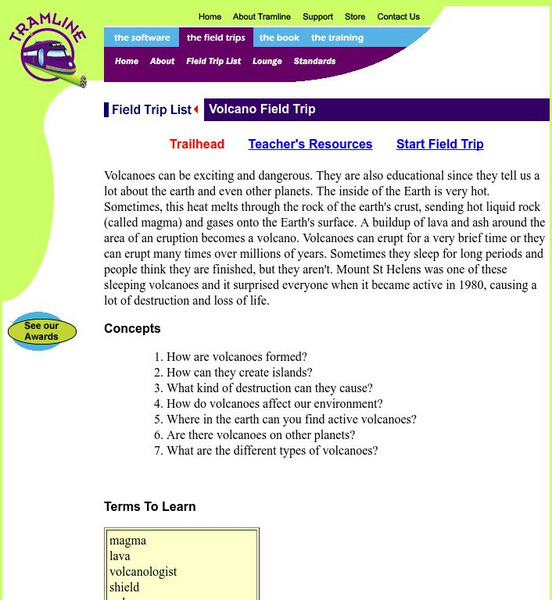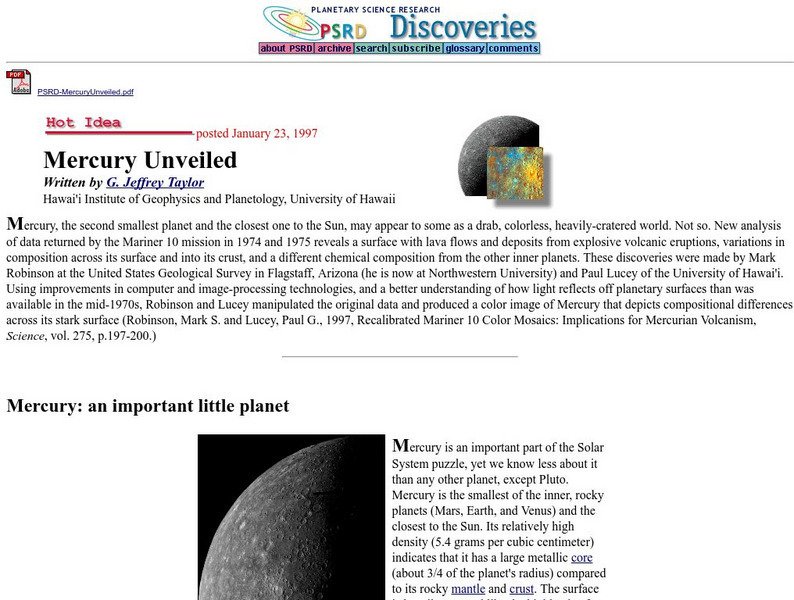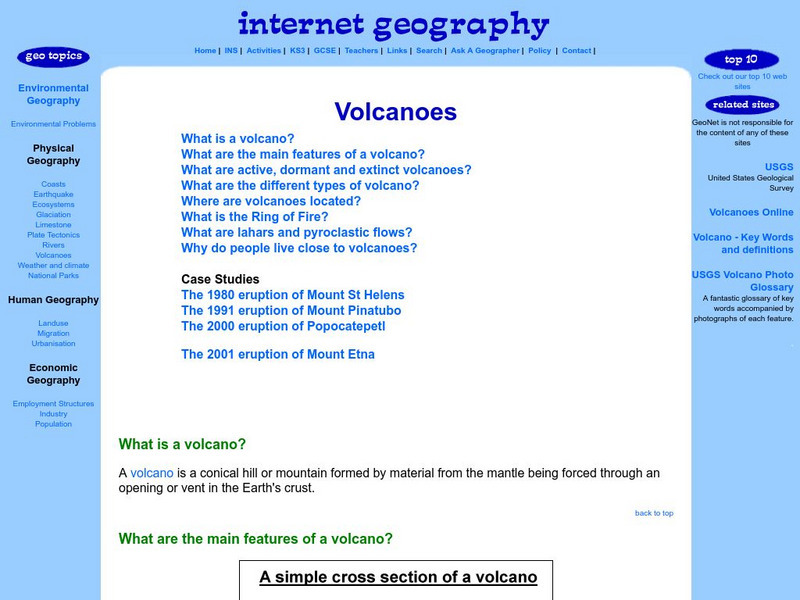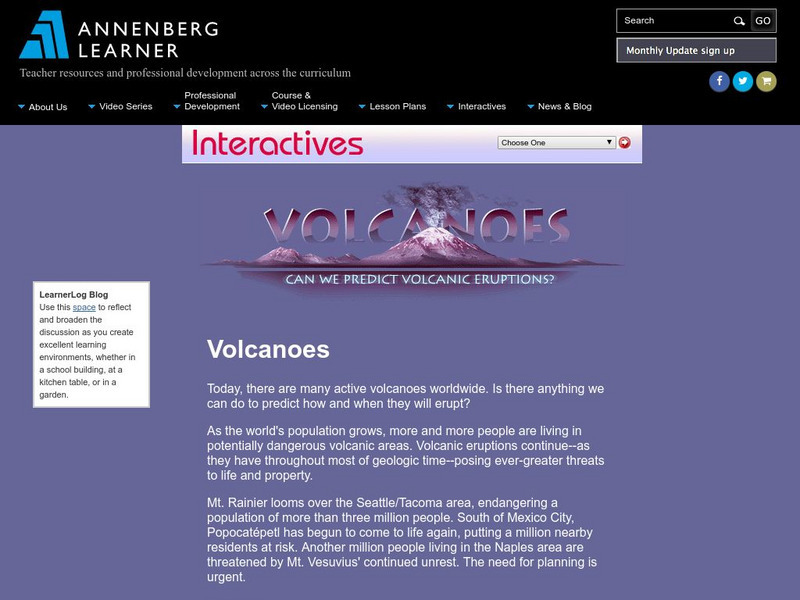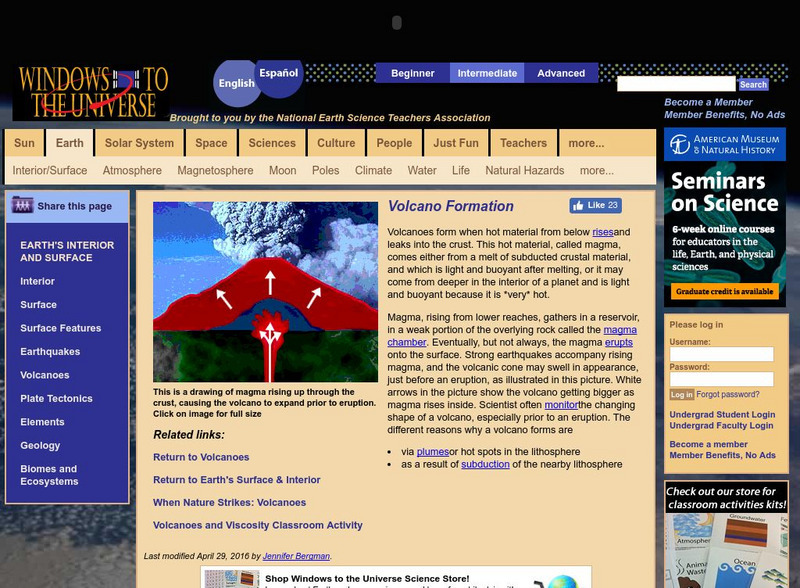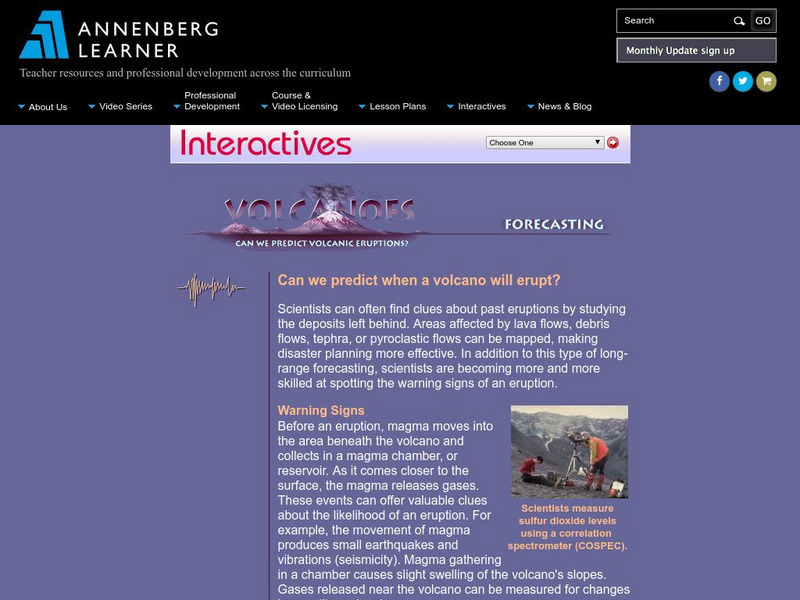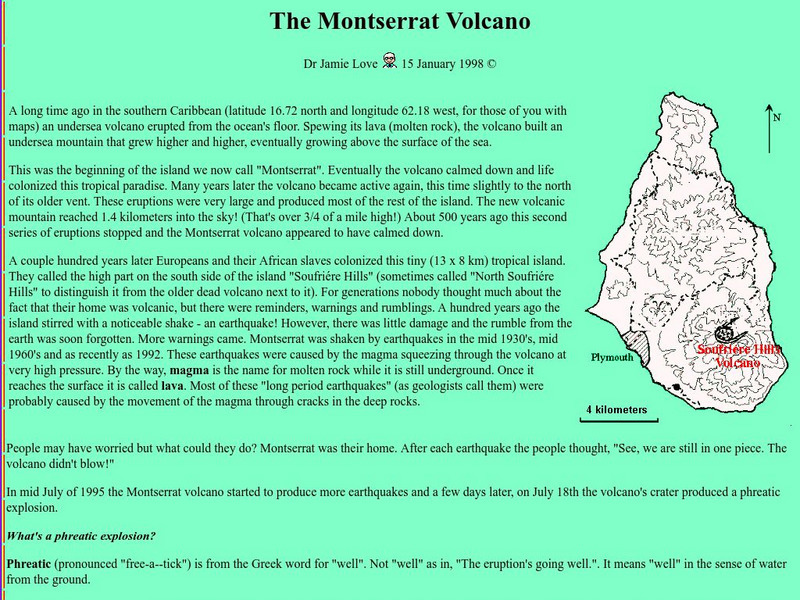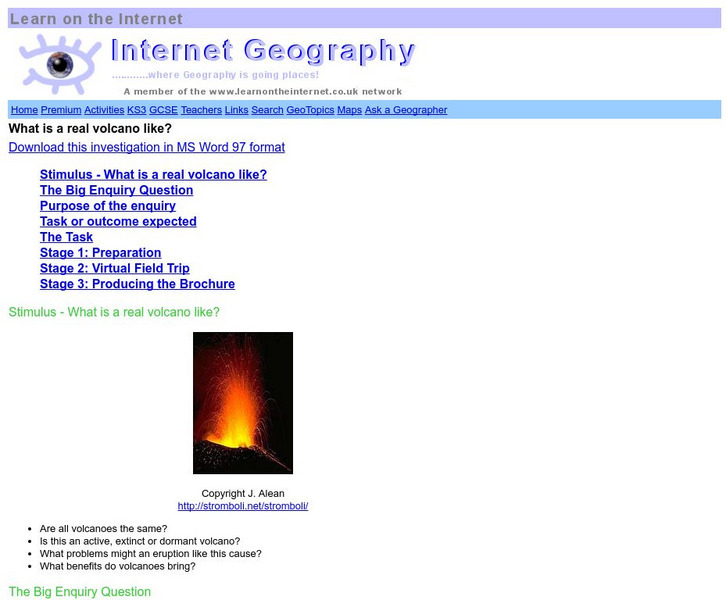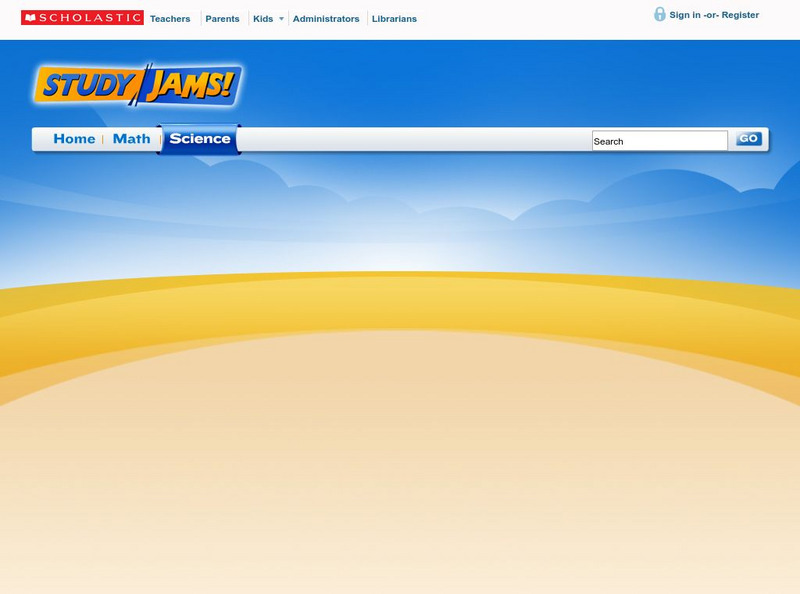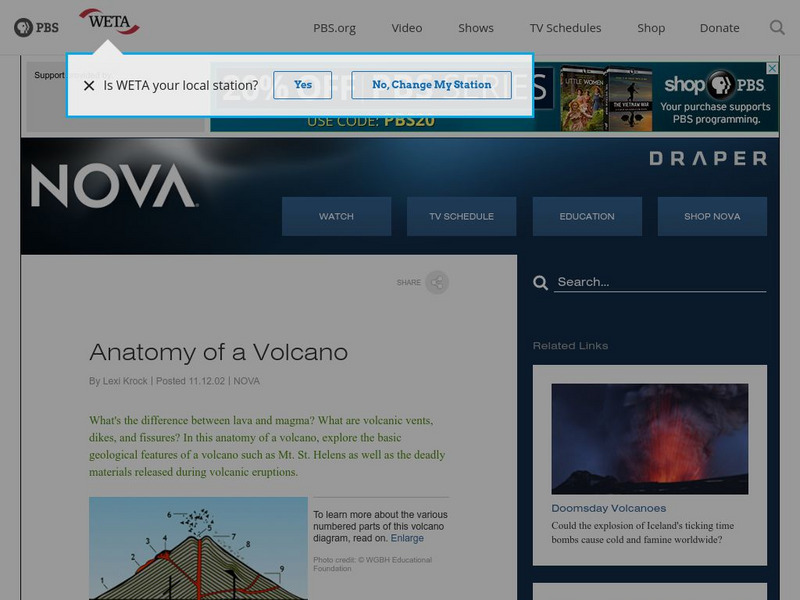Curated OER
A Visit to Southern Africa - Volcano
Students examine a cookie that represents pumice and lava in order to realize that lava is a composite of many rock particles. They compare and contrast pumice to the cookie by estimating, weighing, measuring and dissecting the cookie...
Curated OER
Are We Falling Apart? Exploding Volcanoes
Learners explore how volcanoes are formed, list the parts and characteristics of volcanoes, state the differences in various types of lava, and analyze the volume of ejecta from a volcano.
Curated OER
Peanut Brittle Volcano
Students see simulated lava flow down a simulated volcano. They examine how lava cools fastest on the surface.
Tramline
Virtual Field Trip: Volcanoes
In this virtual field trip find out about how volcanoes are formed and what kind of destruction can they cause. Discover how volcanoes affect our environment and where can you find active volcanoes on earth and on other planets.
University of Hawai'i
University of Hawaii: Mercury Unveiled
New analysis of data returned by the Mariner 10 mission. Includes several photo images. Examines the possibility of volcanism in the history of Mercury and comparisons to Hawaiian and Lunar volcanic events.
Other
Geo Topics: Volcanoes
This site explains what a volcano is by looking at the features, types, and the location of volcanoes The site also looks at some case studies for further information.
Georgia Department of Education
Ga Virtual Learning: Rock Cycle
This tutorial explains the rock cycle--from beginning to end! It is full of activities, assessments, games, slideshows and all kinds of interactive material. Learn what rocks are made of and how they change from one form to another....
TeachEngineering
Teach Engineering: Measuring Lava Flow
Students learn how volume, viscosity and slope are factors that affect the surface area that lava covers. Using clear transparency grids and liquid soap, students conduct experiments, make measurements and collect data. They also...
TeachEngineering
Teach Engineering: How Far Does a Lava Flow Go?
While learning about volcanoes, magma and lava flows, students learn about the properties of liquid movement, coming to understand viscosity and other factors that increase and decrease liquid flow. They also learn about lava composition...
Annenberg Foundation
Annenberg Learner: Volcanoes: Can We Predict Volcanic Eruption
Wonderful presentation on volcanoes! Why do volcanoes erupt? How do they erupt? What happens to the land? Can volcano eruptions be predicted? Find the answers by clicking on this resource!
National Earth Science Teachers Association
Windows to the Universe: Volcano Formation
Explanation of the factors that result in the formation of volcanoes, some basic but helpful animations and photographs.
Annenberg Foundation
Annenberg Learner: Volcanoes: Forecasting Eruptions
A look at some of the methods and problems with forecasting volcanic eruptions.
Annenberg Foundation
Annenberg Learner: Essential Science for Teachers: Earth and Space 3
Visit an active volcano site to find out the connection between the movement of the Earth's plates and the processes deep within the Earth's interior. [58:23]
BBC
Bbc: Week of 9 1 14: Iceland Issues New Volcano Alert
Iceland has been on the watch for potential disaster caused by volcanic explosions. Read about the current risks and view video of the eruptions from the Bardarbunga volcano.
NOAA
Noaa: Make Your Own Volcano [Pdf]
Learn how different types of volcanoes develop and construct a simple volcano on your own.
PBS
Pbs Learning Media: Explosion
Video writing prompt where students are asked to explain how lava is involved in the rock cycle. [0:32]
Science Education Resource Center at Carleton College
Serc: Bot Ec: Rate of Lava Flow
In 1983, an eruption began at Kilauea Volcano in Hawaii that has proved to be the largest and longest-lived eruption since records began in 1823. Lava has poured out of the volcano at an average rate of about 160 million m3 per year. To...
Other
Science Explained: Montserrat Volcano
Read an illustrated description of how an undersea volcanic eruption formed the Caribbean island of Montserrat. Includes a lengthy description of volcanic processes and defines many volcanic terms, such as lahar, tephra, and pyroclastic...
Other
Internet Geography: Volcanoes
Investigate volcanoes with this interactive site containing a virtual field trip and other activities.
US Geological Survey
Cvo: Magma, Lava, and Lava Flows
Site delves into magma, lava and lava flows. Provides numerous links for additional references.
US Geological Survey
Usgs: Volcanic Hazards, Features, and Phenomena
Site from the U.S. Geological Survey provides a brief list of volcano terminology including descriptions as well as links to major menus.
Scholastic
Scholastic: Study Jams! Science: Landforms, Rocks & Minerals: Volcanoes
A video and a short multiple-choice quiz on the topic of volcanoes.
Scholastic
Scholastic: Study Jams! Science: Landforms, Rocks & Minerals: Igneous Rocks
A slideshow, a karaoke song to sing along to, and a short multiple-choice quiz on the topic of igneous rocks, how they are formed, and some different types.
PBS
Pbs Nova: Anatomy of a Volcano
A reference page to explore the basic geological features of volcanoes.





